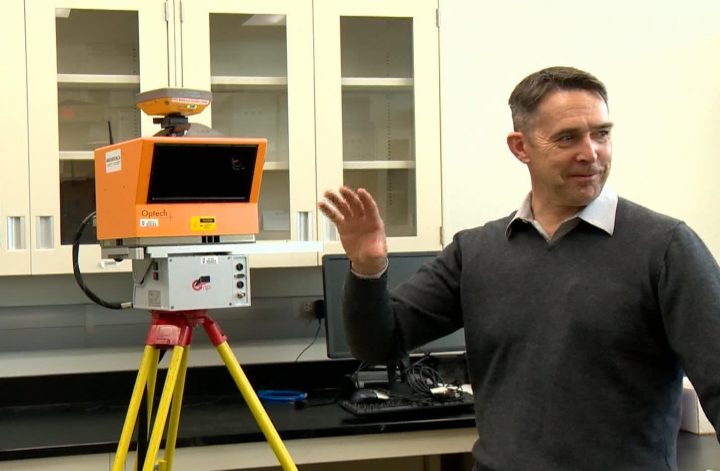The University of Lethbridge announced Monday that it is receiving more than $1.6 million in funding for a pair of projects that aim to support sustainable and culturally respectful resource development.

The bulk of the investment is almost $1.2 million towards the purchase of the Titan multi-spectral LIDAR imaging system. The airborne equipment will complement the university’s Ecosystem Diagnostic Imaging (EDI) facility and provide information for companies in sectors that include oil and gas, forestry and agriculture.
Chris Hopkins, a University of Lethbridge professor and research chair, said the technology allows the school to lead and carry out missions around the world.
“It implements a laser pulsing system on board an airplane,” said Hopkins. “The laser pulses are emitted from the aircraft, bounce off the ground, return, measure the roundtrip travel time, and that allows us to get a 3D map.”
The purchase is a one-of-a-kind piece of equipment that will let researches explore areas that were previously untouchable.

Get breaking National news
“It actually has three lasers on board,” said Hopkins, “creating different wavelengths, and from that technology, we can obtain a very intricate and detailed 3D image of the ground surface.”
The project will also create jobs, with 20 positions for highly qualified personnel anticipated to open and assistance for 50 small- to medium-sized businesses planned.
The second project was a grant of $432,184 from the federal government, which will allow for collaboration between the university and the Piikani First Nation. The plan for that money is to develop and implement a community-based environmental monitoring program that will be managed by the two groups.
Ira Provost, the manager of Piikani Nation consultation, said the aim is to enrich and empower their own nation by blending traditional Indigenous knowledge with new technologies.
“With technology increasing by leaps and bounds,” said Provost, “it’s really important that we use technology to draw in our culture, to strengthen our culture.”
“If we’re able to capture some of these connections to the land, we’re able to show others how to strengthen those relationships with the land.”
An important component of the developing project is the involvement of Piikani elders, who will provide guidance for the team of 15 Piikani youth. The youth will be trained to collect, store and manage environmental and cultural data.

Comments
Want to discuss? Please read our Commenting Policy first.